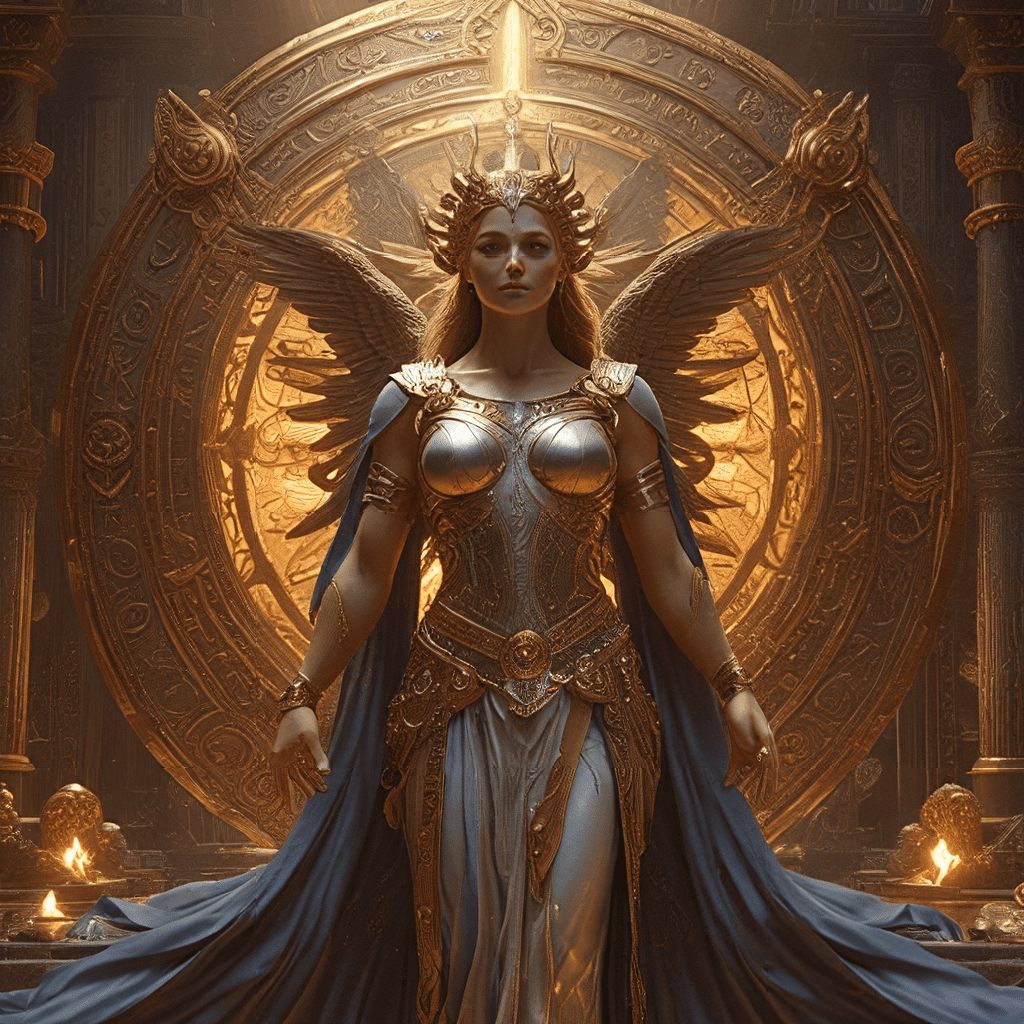The Gods and Goddesses: Symbols of the Human Spirit
I. Introduction: The Enduring Appeal of Mythology
Across cultures and throughout history, stories of gods and goddesses have captivated the human imagination. These tales, often referred to as myths, hold a timeless allure that transcends generations. More than mere entertainment, mythology serves as a powerful reflection of our deepest hopes, anxieties, and aspirations. It provides a framework for understanding the world around us, our place within it, and the forces that shape our lives.
From the ancient myths of Greece and Rome to the rich tapestry of Norse and Egyptian legends, mythology plays a vital role in shaping cultural identity and values. It provides a sense of shared history and a common narrative that binds communities together, offering a lens through which to examine morality, justice, and the nature of existence itself.
II. Deities as Embodiments of Human Traits and Desires
Across different cultures, deities often mirror the spectrum of human traits and desires. These divine figures serve as potent symbols representing a vast array of emotions, motivations, and capabilities. They embody the strength, wisdom, and creativity we strive for while also acknowledging our vulnerabilities, weaknesses, and the darker aspects of humanity.
Consider the Greek deities: Zeus, the king of the gods, embodies power, authority, and the complexities of leadership. Athena, the goddess of wisdom and strategy, represents intellectual prowess and strategic thinking. Aphrodite, the goddess of love and beauty, encapsulates the allure and challenges of romantic desire. These figures, and countless others across various mythologies, provide rich avenues for exploring the intricate tapestry of human experience.
III. The Cosmic Order and the Gods’ Role in Maintaining It
In many mythologies, deities are intricately connected to the cosmic order, responsible for maintaining the balance and harmony of the universe. They control the natural forces, influencing weather, seasons, and the cycle of life and death. The gods are believed to intervene in human affairs, shaping destiny, dispensing justice, and offering guidance.
The Egyptian god Ra, for example, is credited with creating the sun and guiding its journey across the sky, representing life-giving energy and the cyclical nature of existence. In Norse mythology, Odin, the all-father, is associated with wisdom, knowledge, and the cosmic tree Yggdrasil, symbolizing the interconnectedness of all things. These powerful figures embody the awe-inspiring and often mysterious forces that govern the universe.
IV. The Struggle Between Good and Evil in Mythology
The timeless conflict between good and evil echoes through numerous mythologies, often depicted in the form of divine battles and rivalries. The gods, representing light, order, and justice, clash with forces of darkness, chaos, and destruction. These epic confrontations offer profound insights into the human struggle for morality, the consequences of ambition, and the importance of upholding a moral code.
The Greek myths feature the Olympian gods, who, after a fierce battle, defeated the Titans, who personified primal forces and the chaotic origins of the universe. In Norse mythology, the saga of Ragnarok depicts a catastrophic battle that ultimately leads to the end of the world, highlighting the cyclical nature of existence and the inevitable confrontation between opposing forces. These epic narratives offer a framework for understanding the enduring human struggle for balance and the potential consequences of unchecked chaos.
V. The Human Condition Reflected in Divine Relationships
The relationships between the gods in mythology often mirror the complexities of human interactions, reflecting the full spectrum of human emotions, including love, jealousy, betrayal, and ambition. The gods are not immune to human failings, demonstrating flaws, making mistakes, and succumbing to the temptations of power and desire.
The Greek myths, for example, depict the turbulent family dynamics within the Olympian pantheon, particularly the tumultuous relationships within Zeus’s family, showcasing the complexities of power, loyalty, and love within a family structure. In Norse mythology, Loki, the trickster god, embodies the darker side of human nature, perpetrating deceit and chaos, serving as a cautionary tale about the consequences of unchecked ambition. These divine narratives provide a framework for understanding the human condition, with all its imperfections and vulnerabilities.
VI. The Importance of Ritual and Sacrifice in Worship
Across various cultures, rituals and sacrifices played a significant role in establishing a connection with the divine. These practices, often involving offerings, prayers, and symbolic actions, were intended to honor the gods, seek their favor, and appease their wrath.
Offerings, ranging from simple gifts of food and drink to more elaborate sacrifices of animals or even humans, were seen as expressions of gratitude, devotion, and a means of seeking divine intervention. These practices served to reinforce the connection between the human and divine realms, shaping the cultural beliefs and practices of ancient societies.
VII. The Evolution of Mythology and its Adaptation to Changing Societies
Mythology is not static. As societies evolve, so too do their stories. Over time, myths are adapted, reinterpreted, and sometimes even rejected as new cultural contexts and understandings emerge. Historical events, scientific discoveries, and philosophical shifts all contribute to the ever-changing nature of these narratives.
The gods themselves may be reimagined or reinterpreted to reflect new societal values or to address emerging challenges. The interpretation of ancient myths continues to evolve as we grapple with contemporary issues, finding new insights and relevance in these timeless narratives. Mythology, in essence, is a living tradition, reflecting the dynamism of human culture and the enduring power of storytelling.




